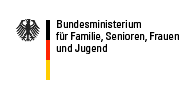Health
Health
Health, according to the World Health Organisation (WHO), can be described as a condition of physical, emotional and social well-being which goes beyond the absence of illness. The goal of health policy is to obtain and foster this well-being in citizens and to restore it in the event of illness. For this, a comprehensive health system is necessary, providing health care for all irrespective of their financial situation and life situation. Thus, the statutory health insurance system in Germany, based on the principle of solidarity, is one of the main elements of the federal welfare state. 90 % of insured persons are in this system, while 10 % of the population choose a private health insurance as an alternative.
Health research and policy often reveal differences that discriminate in terms of gender in prevention and care of illness, to the extent that they work in a way that is differentiated in terms of gender and oriented to gender equality. To give women and men the same chances of staying or becoming healthy, it is necessary to take their individual specific life situations and needs into account. This is especially so in a time of comprehensive reforms such as the ones currently taking place in the health sector in Germany. What is also conspicuous is the gender-specific segregation in the various health occupations. Gender Mainstreaming helps to develop measures for ensuring discrimination-free access to health occupations and appropriate evaluations.
Here you can find examples of Gender aspects which are important in the health sector and a link to the Center for Gender Research in Medicine (GiM) at the Charité university medicine hospital in Berlin, with which the GenderCompetenceCenter cooperates.
Health research and policy often reveal differences that discriminate in terms of gender in prevention and care of illness, to the extent that they work in a way that is differentiated in terms of gender and oriented to gender equality. To give women and men the same chances of staying or becoming healthy, it is necessary to take their individual specific life situations and needs into account. This is especially so in a time of comprehensive reforms such as the ones currently taking place in the health sector in Germany. What is also conspicuous is the gender-specific segregation in the various health occupations. Gender Mainstreaming helps to develop measures for ensuring discrimination-free access to health occupations and appropriate evaluations.
Here you can find examples of Gender aspects which are important in the health sector and a link to the Center for Gender Research in Medicine (GiM) at the Charité university medicine hospital in Berlin, with which the GenderCompetenceCenter cooperates.
erstellt von Administrator
—
zuletzt verändert:
02.01.2010 20:08





